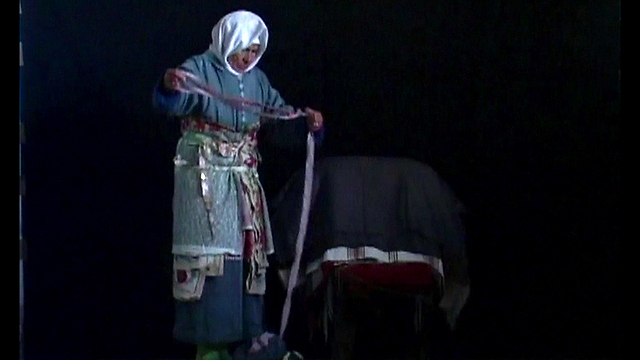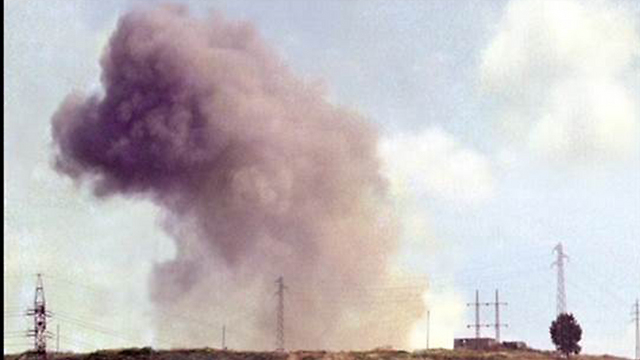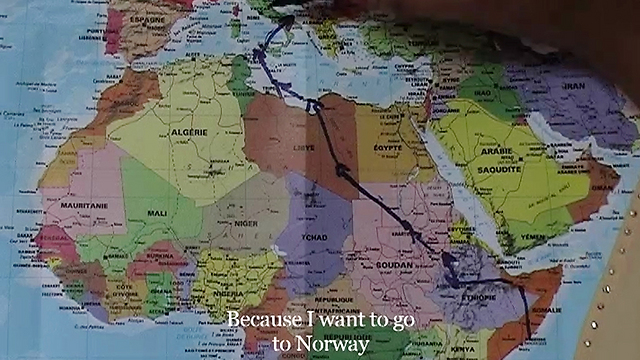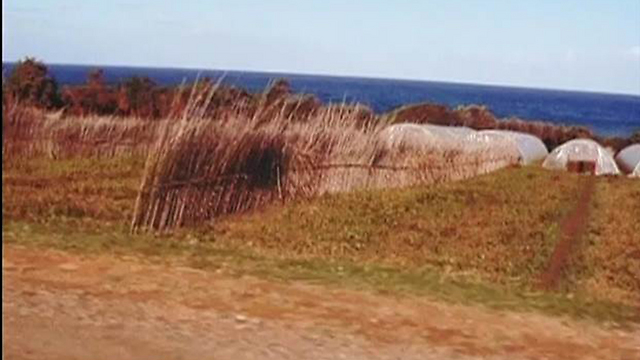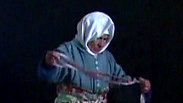
The work of Yto Barrada
Five Muslim artists from different countries asked to have their work removed over the weekend from the 3rd Mediterranean Biennale, which is scheduled to open in the Sakhnin Valley this week, following pressure from the BDS movement. The artists said they decided to cancel their participation in the Israeli exhibition as a show of solidarity with the Palestinian people.
The Mediterranean Biennale will be held in the Jewish-majority community of Misgav and the Arab-majority cities of Sakhnin, Arraba and Deir Hanna. It will feature the work of 60 artists from 25 countries, including many artists from Arab-majority countries that have no diplomatic relations with the State of Israel, such as Kuwait, Morocco and Algeria.
Ahead of the opening, several artists of Muslim descent submitted a request Saturday to cancel their participation in the exhibition in light of the solidarity with the Palestinian struggle and to reflect their unwillingness to cooperate with an Israeli institution. The artists include Zineb Sedira (France/Algeria/England), Bouchra Khalili (Morocco/France), Walid Raad (Lebanon/United States), Akram Zaatari (Lebanon) and Yto Barrada (France/Morocco).
About a year and a half ago, the Mediterranean Biennale contacted the FRAC museum in Marseilles and asked to borrow pieces created by several video artists from Arab countries, including Morocco and Lebanon. The request was submitted to the museum’s artistic committee, which decided to lend the work from the museum’s collection (a national collection) for the duration of the biennale. The exhibition was required to pay a certain sum for borrowing the work, as is customary in such cases.
In an unusual move, the French museum’s director then asked the Mediterranean Biennale to remove the Arab artists’ work, saying they did not want their work to be displayed in Israel. The artists have declared on social media that they support the Palestinian struggle against Israel and won’t cooperate with Israel by displaying their work in the biennale.
The screens for the removed video pieces, which have already been put up in different places ahead of the event, will remain shut. The works include a map of refugees’ route from Africa to Europe, videos from a trip through Algeria, images of bombed houses in the first Lebanon War and a car bomb explosion in Beirut.
The Mediterranean Biennale’s curator, Belu-Simion Fainaru, said in response: “This is a political decision supported by the BDS movement, aimed at creating a boycott against Israel in every possible field, including the field of art, as a reflection of the new anti-Semitism that has been created in France and Europe in recent years. They are trying to spread anti-Semitism in the world while harming, slandering and isolating Israel in the global arena and creating an international boycott against the state.
“There have been BDS-tagged calls on social media to boycott the event and to refuse to take part in it. Art has a power of rising above disputes and political conflicts between communities and serving as a tool for free expression, bridging between people and communities in conflict and dispute. The goal of art is to unite rather than to separate, increase hatred and animosity and violence, through boycotts that have created situations of war, refugees seeking shelter in Europe, acts of terror around the world, etc.”
“I believe,” Fainaru added, “that art is above politics, and its real power is in creating love and solidarity between people. It should be noted that these artists’ works are actually being displayed to a Palestinian population which lives in northern Israel, in the cities of Sakhnin, Arraba and Deir Hanna. As an artistic event, the Mediterranean Biennale aims to create a stage for a discourse and coexistence through art, while opposing the enhancement of hatred and animosity through the boycott.”













